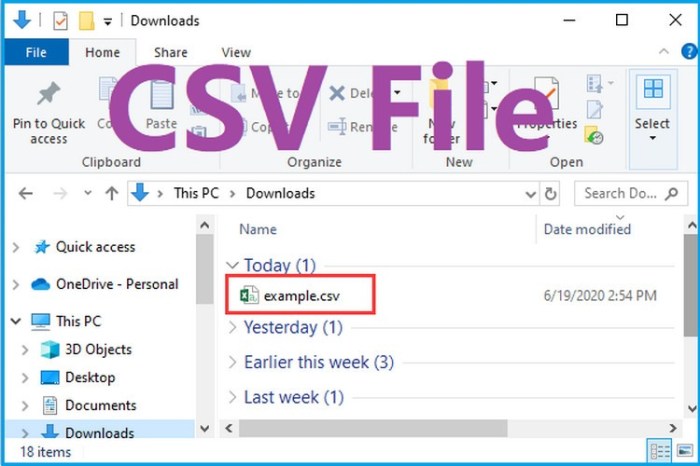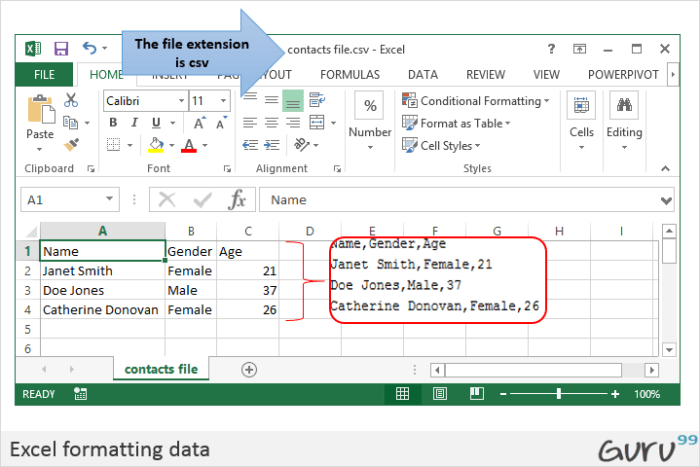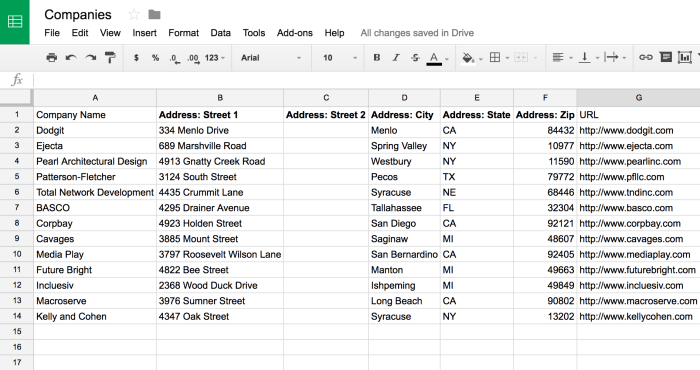Saving a spreadsheet file in .CSV format only saves the raw data, omitting any formatting, formulas, or other elements. This concise and clear title encapsulates the essence of the topic, immediately informing readers about the limitations of saving spreadsheets in .CSV
format.
Despite its simplicity, .CSV (Comma-Separated Values) format plays a crucial role in data exchange and analysis. Its widespread compatibility and ease of use make it an ideal choice for sharing data between different software applications and systems.
Overview of .CSV File Format

A .CSV (Comma-Separated Values) file is a simple, text-based file format used for storing tabular data. It is characterized by its use of commas as delimiters to separate values within each row and line breaks to separate rows.
.CSV files are widely used due to their simplicity and compatibility with various software applications. They are commonly used for data exchange, data analysis, and data import/export operations.
Saving a Spreadsheet File in .CSV Format

Saving a spreadsheet file in .CSV format involves exporting the data from the spreadsheet software into a text file with the .csv extension.
Steps for saving a spreadsheet file in .CSV format:
- Open the spreadsheet file in the spreadsheet software.
- Select the “File” menu and choose the “Save As” option.
- In the “Save As” dialog box, select the “CSV (Comma-separated values)” file format from the “Save as type” drop-down list.
- Specify the file name and location where the .CSV file should be saved.
- Click the “Save” button to save the spreadsheet file in .CSV format.
Limitations of Saving a Spreadsheet File in .CSV Format: Saving A Spreadsheet File In .csv Format Only Saves The

While .CSV format is widely used, it has certain limitations:
- Loss of Formatting:.CSV format does not support formatting, such as bold, italics, or colors. All formatting is lost during the conversion.
- Limited Data Types:.CSV format only supports simple data types, such as text, numbers, and dates. Complex data types, such as formulas, charts, or images, are not supported.
- Data Integrity Issues:Commas and line breaks within the data can cause issues during import/export operations, leading to data corruption or errors.
Best Practices for Saving a Spreadsheet File in .CSV Format
To ensure data integrity and accuracy, follow these best practices:
- Prepare Data Properly:Ensure that the data is properly formatted and does not contain any special characters or commas within the data values.
- Use Consistent Delimiters:Use commas as delimiters throughout the file to avoid confusion during import/export operations.
- Quote Special Characters:If data values contain commas or line breaks, enclose them in double quotes to prevent misinterpretation.
Applications of Saving a Spreadsheet File in .CSV Format
![]()
.CSV files are used in various applications, including:
- Data Analysis:.CSV files are commonly used for data analysis and manipulation in statistical software and data visualization tools.
- Data Sharing:.CSV files are a convenient way to share data between different systems and applications that may not have direct compatibility.
- Data Integration:.CSV files are used as an intermediate format for data integration, allowing data to be transferred between different systems or databases.
FAQ Resource
What is the primary limitation of saving a spreadsheet file in .CSV format?
Saving a spreadsheet file in .CSV format only retains the raw data, excluding any formatting, formulas, or other elements.
Why is it important to select the correct file extension (.csv) when saving a spreadsheet file?
Selecting the correct file extension ensures that the spreadsheet file is recognized as a .CSV file by other applications and systems, allowing for seamless data exchange.